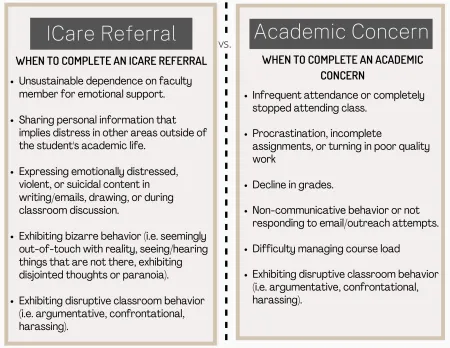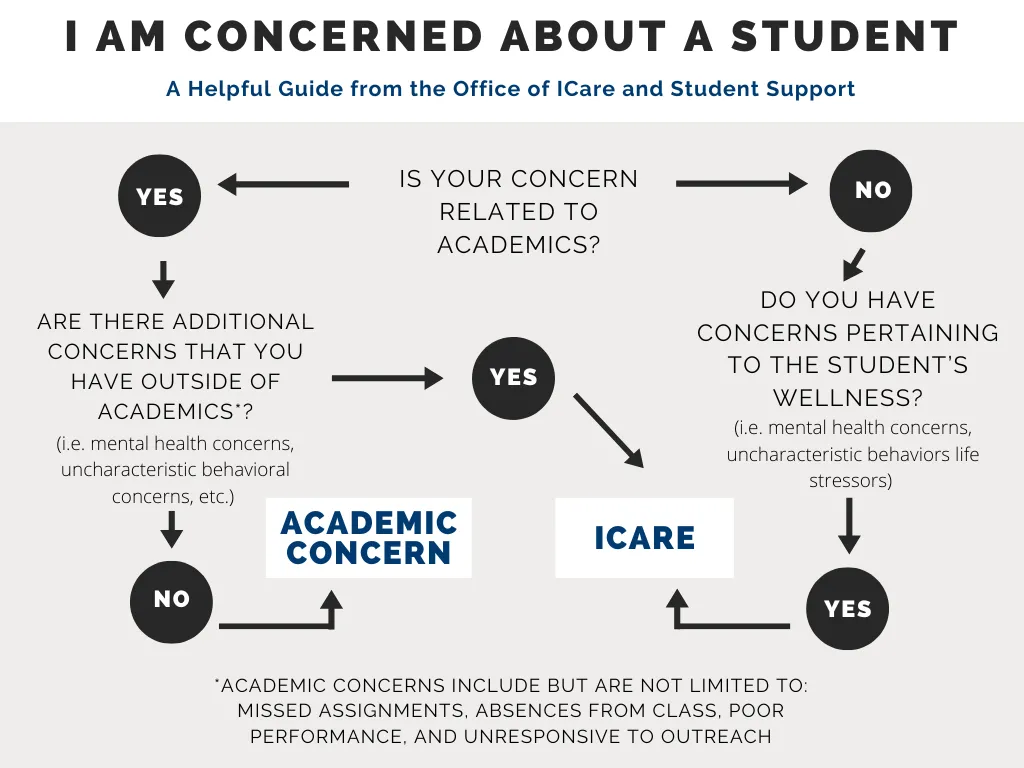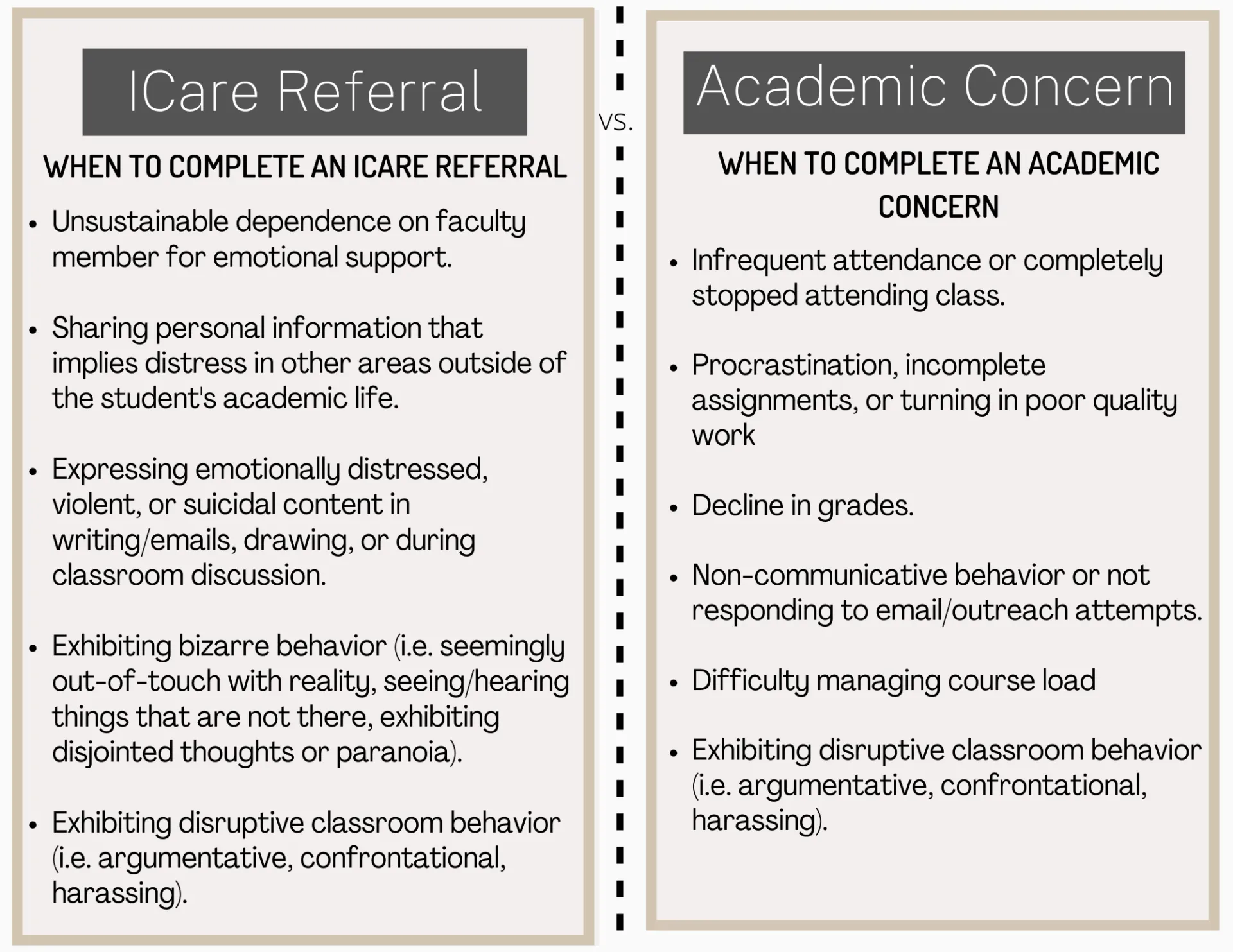The majority of academic concerns should be shared with the Academic Concern process. This outreach allows for specialized outreach from academic supports on campus.
The Academic Concern process is overseen by the Academic Support Center. The Office of ICare and Student Support oversees the ICare referral process.
When an ICare Referral is submitted that is solely regarding academic concerns, it will be re-routed to the Academic Concern process. However, due to the review process of ICare referrals this will delay outreach to students in need of support. Please consider your concerns carefully before submitting an ICare referral.
If you have further questions, please review the following content on this webpage. If you'd like further clarification, please contact our office at (607)274-7731.


